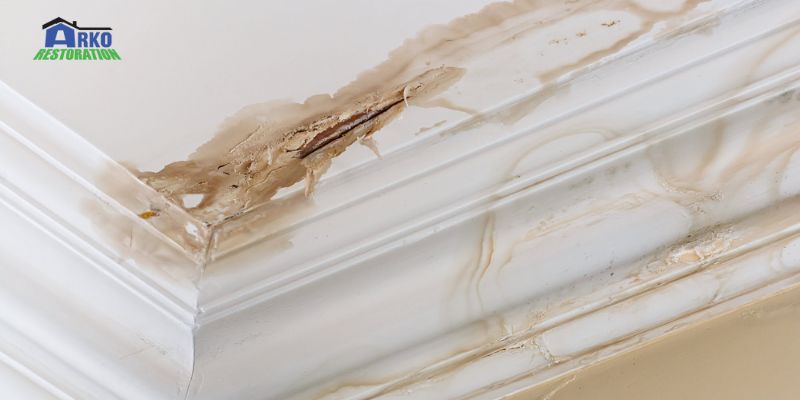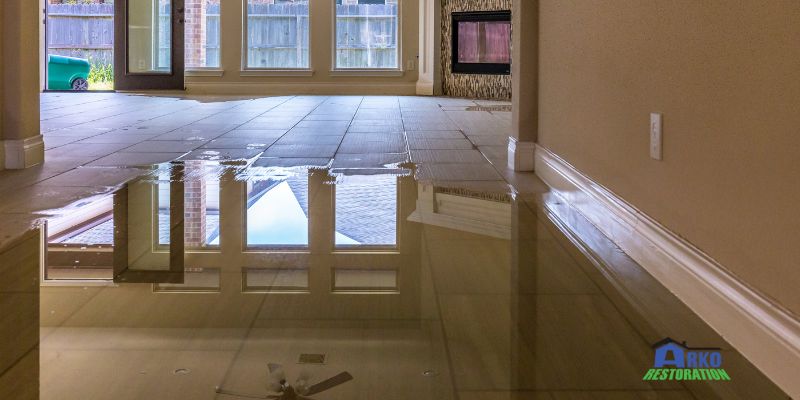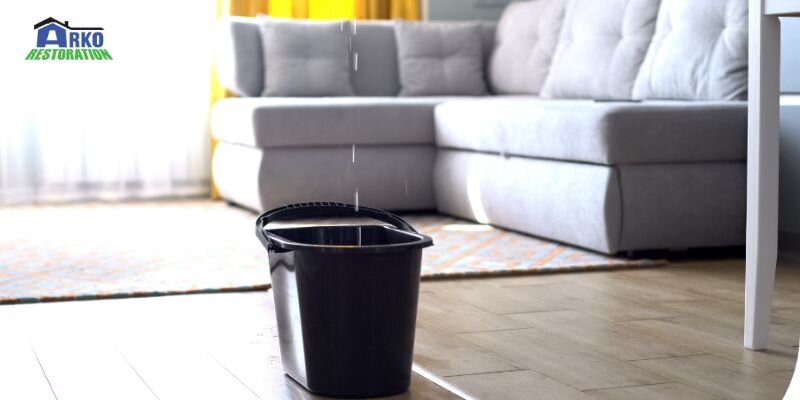Water damage is a serious issue that can have far-reaching consequences if left unaddressed. It’s often said “out of sight, out of mind,” but when it comes to maintenance, this mindset can lead to significant problems.
The Consequences Of Neglecting Maintenance
What can go wrong when maintenance is neglected? Consider this information.

1. Structural Damage
Water damage can wreak havoc on the structural integrity of your property. When neglected, small leaks or cracks can gradually worsen, compromising the stability of walls, floors and foundations. Over time, this can lead to costly repairs and even pose safety risks for inhabitants.
2. Mold Growth
One of the most significant concerns associated with water damage is the growth of mold. Excess moisture provides an ideal breeding ground for mold spores, which can quickly spread throughout your property. Mold not only causes unpleasant odors but also poses health risks, especially for those with respiratory conditions or allergies. Preventing water damage through regular maintenance is essential to avoid the growth of mold and ensure a healthy living environment.
3. Electrical Hazards
Water and electricity are a dangerous combination. When water infiltrates electrical systems, it can create hazardous conditions, increasing the risk of electrocution and fires. Neglected maintenance can lead to water intrusion in wiring, outlets and appliances, putting the safety of occupants at risk. Regular inspections and upkeep can help identify potential electrical hazards and prevent water-related accidents.
4. Decreased Property Value
Water damage can significantly decrease the value of your property. Visible signs of water damage, such as stained walls, peeling paint or warped flooring, can make potential buyers wary. Moreover, unaddressed water damage often implies underlying issues that may discourage potential buyers or lead to decreased offers. By prioritizing maintenance and promptly addressing water-related problems, you can maintain or even increase the value of your property.
Preventive Maintenance Tips

To protect your property from water damage and its associated consequences, here are some preventive maintenance tips to follow…
1. Regular Inspections
Schedule regular inspections of your property to identify any signs of water damage or potential issues. Pay close attention to areas prone to water intrusion, such as the roof, gutters, plumbing systems and basement(s). Detecting problems early on allows for prompt repairs and minimizes the risk of extensive damage.
2. Roof Maintenance
Ensure your roof is in good condition by inspecting for missing or damaged shingles, cracks or leaks. Keep gutters and downspouts clear of debris to prevent water from pooling or overflowing. Regularly maintain your roof to safeguard against water infiltration and subsequent damage.
3. Plumbing System Checks
Regularly inspect your plumbing system for leaks, drips or signs of moisture. Check under sinks, around toilets and in utility areas for any water-related issues. Addressing plumbing problems promptly can prevent water damage and conserve water, leading to cost savings.
4. Landscape Maintenance
Proper landscaping plays a vital role in preventing water damage. Ensure your yard is graded away from the foundation, directing water flow away from the property. Trim trees and shrubs to prevent branches from damaging roofs or blocking gutters. By maintaining your landscape, you can mitigate the risk of water-related issues.
5. Adequate Ventilation
Promote good air circulation and prevent excess moisture by ensuring proper ventilation throughout your property. Use exhaust fans in kitchens, bathrooms and laundry rooms to remove humid air. Additionally, consider using dehumidifiers in basements or areas prone to high humidity to maintain optimal moisture levels.
Summary:
Neglecting home maintenance can have severe consequences, particularly when it comes to water damage. By understanding the risks associated with neglect and prioritizing preventive maintenance, you can protect your property from structural damage, mold growth, electrical hazards and decreased value. Regular inspections, roof maintenance, plumbing system checks, landscape upkeep and adequate ventilation are essential steps in preventing water damage. Remember, a proactive approach to maintenance will save you time, money and headaches in the long run. Don’t let “out of sight, out of mind” become your approach to property maintenance– take action to safeguard against water damage today!

